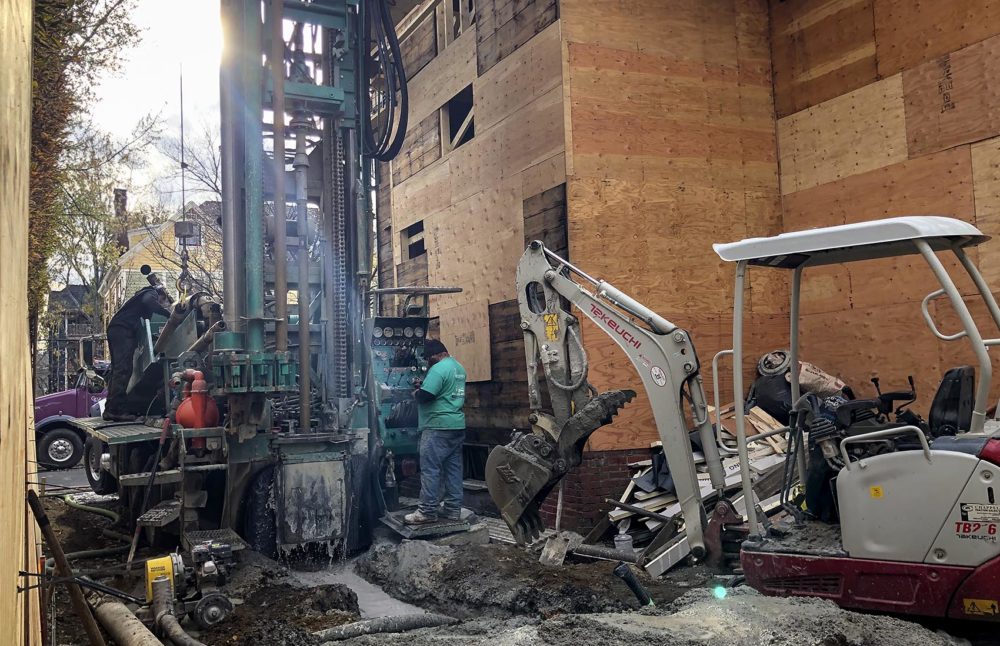How A Climate Change Nonprofit Got Eversource Thinking About A Geothermal Future

A Gap Mountain Drilling truck at work in Brookline, Mass. (Bruce Gellerman/WBUR)
Natural gas utilities in Massachusetts are facing an existential crisis: they could be out of business by mid-century. That’s because the state’s 2008 Global Warming Solutions Act requires emissions from burning fossil fuels — like natural gas — be cut by 80% economy-wide by 2050.
But now a solution that could help save the companies — and the climate — is at hand. Or, more accurately, underfoot. It’s geothermal energy, which takes advantage of the biggest energy storage system on earth: the earth itself.
Our planet absorbs the sun’s solar energy and stores it underground as thermal energy that can be used to heat and cool homes and businesses. Just a few yards down, the earth’s temperature is a constant 50 to 60 degrees; warmer than the air above during winter, cooler in the summer. You can take advantage of the temperature difference using what is called a geothermal or ground source heat pump: plastic pipes filled with water and antifreeze pick up the heat from the ground, and the pump circulates it through a building.
The technology, developed in the late 1940s, does away with furnaces, air conditioners and hot water heaters, and is the most efficient way to heat and cool a building. While it’s widespread in some countries, like Sweden, it’s been slow to catch on here.
“The site has to be appropriate,” said architect Lisa Cunningham, who recently designed a gut renovation of a private Brookline home using geothermal energy. The best sites for geothermal systems have lots of space to install horizontal pipes in relatively shallow ground. But because the Brookline lot is so small, workers had to drill two holes 500 feet deep.
“One thing that’s so great about having a project like this right in the heart of a very dense town, we’re showing people it can be very cost-effective,” Cunningham said, adding that the cost for installing the system in the Brookline home “came in less than a comparable gas system.”
But that includes thousands of dollars in state rebates and federal tax incentives that are expiring. Cost is still a big hurdle, said Zeyneb Magavi, co-executive director of Home Energy Efficiency Team (HEET), a Cambridge-based environmental nonprofit.
Read the rest of this story at WBUR’s website.
